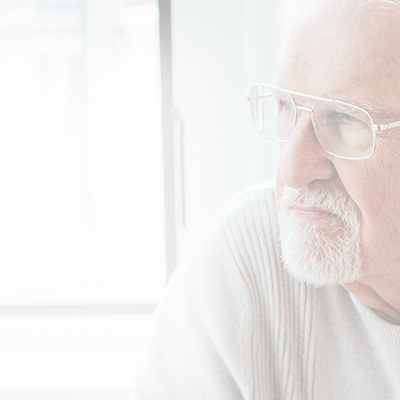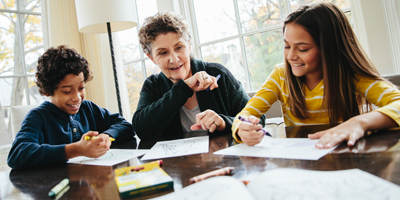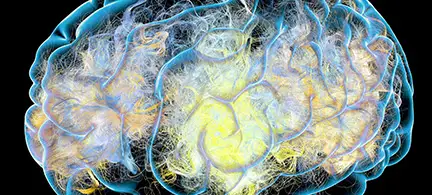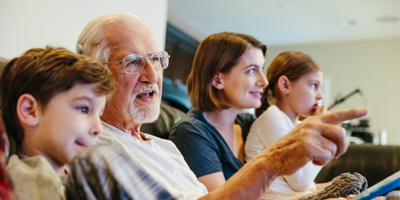Alzheimer's and Dementia Resources for Teenagers
When a parent or grandparent has Alzheimer's disease or another dementia, it affects the whole family, including teenagers. Find books, videos, activities to enjoy with someone who has Alzheimer's, and other resources that can help.
Adolescence is challenging, and the disease may bring even more changes to a teenager's life. For example, they may be asked to pitch in more around the house or to assist with caregiving. Teens may have a variety of thoughts and emotions about how their lives have changed. Depending on the child's age, your approach to talking with them about Alzheimer's will vary. Consider reaching out to a school counselor, therapist or the child's pediatrician for additional support.
How teens might feel when someone has dementia
Some considerations about how a teenager may be feeling include:
- They may have good or bad feelings about how life has changed since someone they love was diagnosed with Alzheimer's or dementia.
- They may feel closer to one or both parents as they face the disease together as a family.
- They may not feel comfortable having friends over.
- They may feel embarrassed or be reluctant to talk about how their loved one living with dementia is acting.
- They may feel it's unfair to be given new chores or unsure about their place in a changing family dynamic.
All these feelings are a normal part of having a family member or close loved one who has been diagnosed with dementia. Your conversation with the teenager in your life will likely be ongoing. Find suggested answers to common questions kids may ask about Alzheimer's.
Books for teenagers about Alzheimer's and dementia
Does someone in your life have Alzheimer’s or another dementia? Reading some of the books on this list can help teens learn more about how the brain works and help them understand the disease.
The Dementia Diaries: A Novel in Cartoons (Ages 7-14)
Matthew Snyman and Social Innovation Lab, Kent
Jessica Kingsley, 2016
Trudy (Ages 8-13)
Jessica Lee Anderson
Milkweed Publishing, 2005
The Human Brain: Inside Your Body’s Control Room (Ages 10-14)
Kathleen Simpson
National Geographic, 2009
Curveball, The Year I Lost My Grip (Age 12+)
Jordan Sonnenblick
Scholastic Paperbacks, 2014
Pop (Age 12+)
Gordon Korman
Blazer and Bray, 2011
Neurocomic (Age 16+)
Hana Ros, Matteo Farinella (Illustrator)
Nobrow Press, 2014
Online resources to share with teens
Explore these resources on other websites. They include information about the brain and Alzheimer's and show examples of how teenagers are dealing with Alzheimer's disease.
- American Association of Caregiving Youth
- When the Brain Fails to Do Its Work
- Lorenzo's House is a resource for children of parents diagnosed with younger-onset dementia.
Videos to watch with teens
It can be hard for teenagers to know where to begin when a loved one has Alzheimer's or another dementia. Watch these videos with them to learn about the disease and hear about how other teens are coping with it.
Part 1: What Is Alzheimer's Disease?
It's easy to be confused about the symptoms of Alzheimer’s and how it differs from dementia, or how the disease changes over time. Watch this video to get the facts.
Part 2: What Can I Expect and How Can I Deal With It?
Teens may have a family member with Alzheimer’s disease and wonder how it will cause changes for them and their family. Watch this video to learn how to make communication and connection with someone with Alzheimer’s disease easier for everyone.
Part 3: If the Person with Alzheimer’s Lives with Us, What Can I Expect?
Teens may wonder why their relationship with someone living with Alzheimer's has changed. The answer is almost always that the disease is responsible for the changes, and keeping that in mind will allow them to cope with the situation more easily. Watch this video to learn more and to explore how teens can make some positive changes of their own.
Part 4: How Can I Help and What’s Out There to Help Me?
There are lots of ways for teens and young adults to make a difference in the lives of those with Alzheimer’s disease and their families. They can start by talking openly about it and sharing with their peers. Watch this video to find out how young people can help move us toward a world without Alzheimer’s.
Related Pages

The first survivor of Alzheimer's is out there, but we won't get there without you.
Donate Now
Learn how Alzheimer’s disease affects the brain.
Take the Brain Tour




